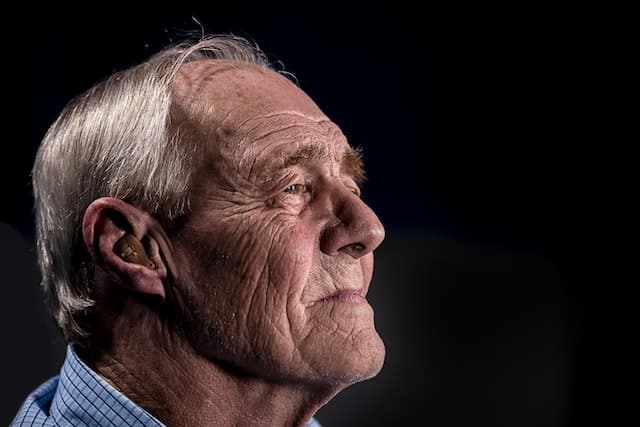








What Is Post-traumatic Stress Disorder?
On this website, you’ll find pages that discuss what trauma and stress are. Post-traumatic stress disorder (PTSD) is a nuanced form of these and is also considered an ‘anxiety disorder’.
If PTSD occurs, it relates to the experience of a traumatic event. The traumatic event that causes PTSD can be anything. It could be an experience in the home during childhood. It could be sexual assault. It could be witnessing a car accident.
Almost anything that is difficult to process can cause PTSD. Two people may experience the same event, yet both may not develop PTSD. Its development depends on various individual factors.
This article will discuss the symptoms of PTSD in Thomas Shelby (Tommy) from the BBC show The Peaky Blinders, exploring how PTSD is portrayed in the series. This will bring a greater understanding of what a person with PTSD might experience.
Because this is based on a fictitious character and is a case study about PTSD, some creative flair has been taken to emphasise how PTSD can be for some people. This article is solely the opinion of the author.
The Traumatic Event
Tommy experienced the horrors of serving in WWI. During the war, he will have witnessed bloodshed and death, horrific brutality, and perhaps even had to do things that he felt uncomfortable with.
Tommy lost his mother to suicide, and as the series progresses he lost his brother, wife, aunt Polly, daughter, and others. These losses, on top of what he lost in war, figuratively (parts of himself), and literally (comrades and friends) take their toll. This means “Complex Trauma” likely developed, this is when someone is exposed to several invasive and traumatic events that are varied and usually of an interpersonal nature.
Even though the war is over, Tommy will ‘relive’ the traumatic events he experienced.
Physiological Symptoms
Because of the horrors he experienced, and due to the nature of his day-to-day life, Tommy is often hyperaroused. He feels on edge and often experiences intrusive thoughts, which can come in the form of flashbacks, creating panic. This makes him feel out of control. Control is something he values highly, especially due to his difficult start in life.
He hates that he can become easily startled. He also feels frustrated that he’s unable to sleep. He often has trouble sleeping because he is hyperaroused and even when he falls asleep, he wakes up with terrifying nightmares about what happened to him and what he witnessed. It feels like he is reliving the experience all over again.
So he often wakes up, with a rapid heartbeat, and realises he is sweating and shaking. Physical symptoms like these can occur during waking life too when a person is reminded of the traumatic experience, for Tommy, the battle.
Emotional Symptoms
Tommy often experiences very negative thoughts about himself. He feels guilty that he survived and others didn’t, believing he deserved to die and often wishing he had. There appears to be some depression at times, and suicidal ideation, all of which are compounded by one of his coping strategies; substance misuse.
Tommy is ashamed he survived and also that he cannot just “get on with it and be okay”. This has left him feeling hopeless and resigned to his misery. Tommy has a lot to handle. His family depends on him, but it’s difficult for him to focus and make decisions. This further increases his feelings of failure.
These feelings, alongside insomnia and panic make Tommy irritable, and angry which can make him reckless and self-destructive.
Behavioural Symptoms
Tommy uses work as a distraction. Distraction is a form of avoidance. The more we avoid, the further down the spiral we go. This means issues are not dealt with and are there waiting to be triggered.
Another form of avoidance is Tommy’s use of alcohol and cigarettes. These help him numb his feelings, and for a (short) time, feel some easement. More on this later…
Tommy avoids going to certain places and people – in fact, anything that might trigger a flashback, memory, and panic symptoms. This limits his lifeworld in ways and also maintains the problem.
Tommy experiences a detached way of being in many of his relationships. He holds people at a certain distance, sharing only parts of himself and this demonstrates his fragmentation which requires integration.
Anti-social behaviour: Although this is not strictly caused by Tommy’s PTSD, it does impact it. Tommy partakes in criminal activities and other forms of anti-social behaviour. His external world is chaotic, unpredictable, violent, stressful, and frightening, mirroring his inner world of flashbacks and nightmares, which relate to the war.
Substance Misuse
Tommy uses alcohol (whisky, neat) and he smokes. Aside from the obvious physical health implications, there exist emotional and psychological impacts as well. But Tommy isn’t aware that there is a cost to alcohol’s soporific effect. Even though it helps him feel drowsy and welcomed into the bosom of sleep…it’s not restful.
Because alcohol inhibits regular sleep cycles by disrupting the normal pattern of light and deep sleep. People may wake up during the night, which means sleep is interrupted. Each time they wake up, the sleep cycle resets, starting again from light sleep.
This means they are precluded from deeper sleep which is needed to feel rested. So Tommy wakes up tired, and even more irritable, and this lack of sleep wears down his ability to regulate his mood and emotions, making him feel less resilient and more vulnerable.
Alcohol impacts brain chemistry and therefore neural activity. So even though people like Tommy take alcohol for emotional comfort, this is misguided because it offers only short-term relief. Over time, more alcohol is required to soothe because tolerance has developed.
And alcohol is a depressant so it slows basic functions, including motor function, affect, speech, reflexes, reactions, and general movement. It also distorts perceptions of immediate surroundings, and people. We are less able to think clearly and make well-informed decisions, based on clear judgments.
Cigarettes can also be a misguided attempt at relieving stress and anxiety. This is because of the chemical nicotine, which is both a depressant and a stimulant. Nicotine causes the release of the hormone epinephrine, creating a stimulant effect on the nervous system.
People become addicted to the drug because they enjoy the initial feeling it gives them. But anxiety is exacerbated rather than relieved by the stimulant effect, and yet the behaviour is reinforced due to short-term pleasure and addiction.
Daily Functioning
So life quality suffers because Tommy does not create opportunites for pleasure but perhaps also cannot experience it. This is because Tommy buries and compartmentalises his feelings, which allows him to cope. Alcohol helps him avoid his feelings, as does his obsession with work, another distraction. Day-to-day functioning is impaired in many ways.
Unfortunately, this strategy provides no long-term solution. Tommy is at a dead-end of loneliness, pain, and misery.
Treating PTSD
It’s easy to see why people like Tommy, who experience PTSD due to traumatic events might turn to alcohol or drugs. But this increases mental health problems because it exacerbates them and can lead to severe anxiety, panic, depression, and suicidal ideation – as seen with Tommy. It is important instead to seek out a mental health professional who can offer treatment options for people with PTSD.
Treatments for PTSD include group therapy, or eye movement desensitisation and reprocessing (EMDR). These are more well-known options for trauma, however, other options can work just as well and should also be considered, based on individual needs and goals.
- Why Is Suicide So Prevalent In KPOP? RIP Moon Bin
- PTSD: Case Study of Thomas Shelby
- Paedophilic Obsessive-Compulsive Disorder (POCD) I
- The Value Of Confronting Self-Doubt As A Psychotherapist
- What Happens When Trauma Is Ignored, Vs When It's Not
- A Warm Welcome From Phinity Therapy
- Rehanna Talks Issues
- Rehanna Discusses Phinity Services
- The HEALTHIER WAY To Grieve
- What Your THERAPIST'S TITLE REALLY MEANS!

- Edgewood Health Network. (n.d.). Is Alcohol a Stimulant or a Depressant? Retrieved from https://www.edgewoodhealthnetwork.com/resources/blog
- Ochsner Health. (n.d.). Tobacco-Free Living: The Legacy - Tobacco-Free Resources. Retrieved from https://www.ochsner.org/health-resources/tobacco-free-living-the-legacy/tobacco-free-resources/nicotine-and-tobacco-products
- Reynolds, G. (2022, January 25). Alcohol Disrupts Sleep Regulation. The New York Times. Retrieved from https://www.nytimes.com/2022/01/25/well/mind/alcohol-drinking-sleep.html


